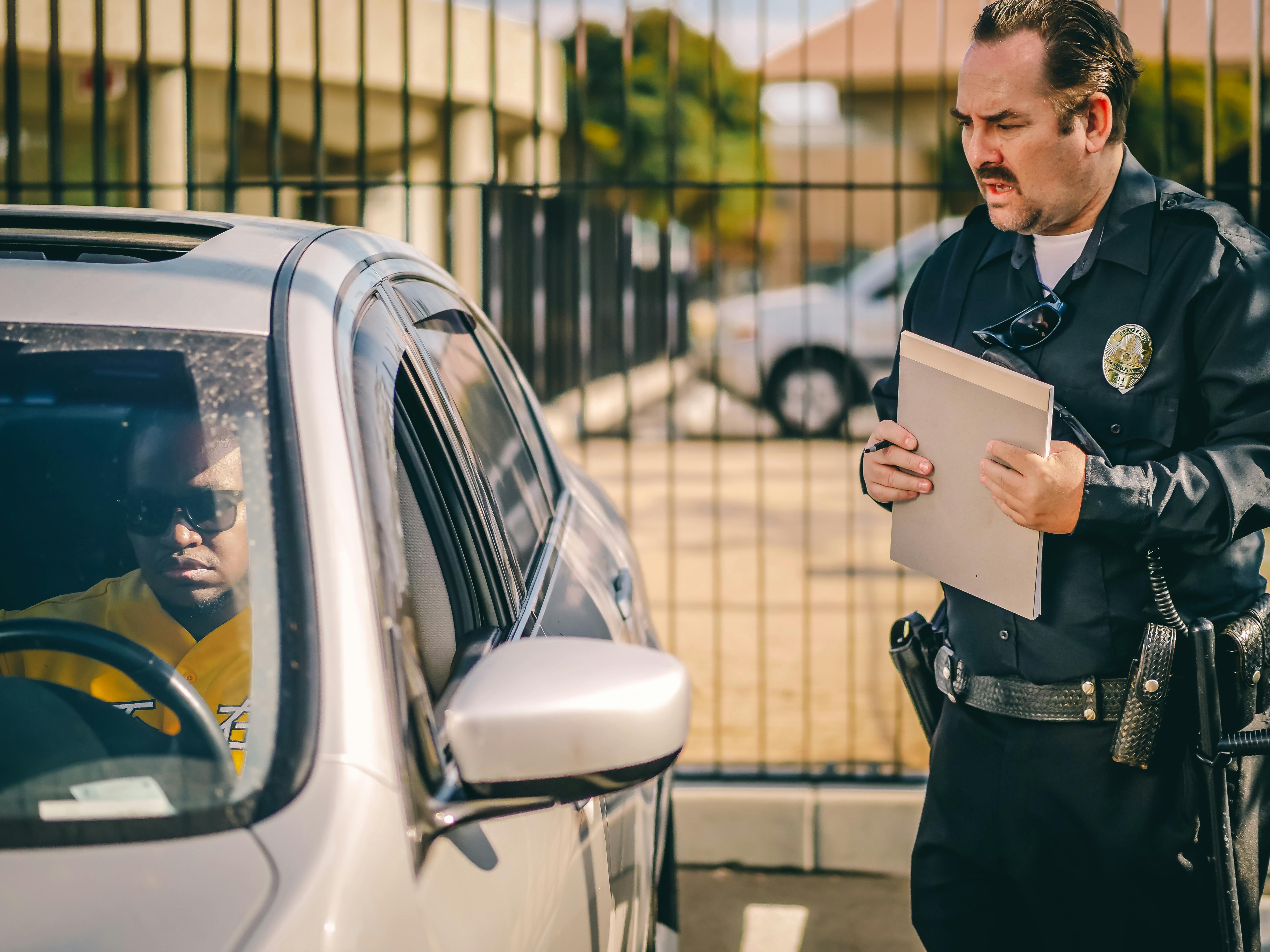Rights During a Traffic Stop
What you can and cannot do when you are pulled over.

If you’re pulled over in Ohio, know your rights. Toledo traffic attorney Brian C. Morrissey explains what to say (and not say), how to handle searches, and when to call a lawyer.
Almost Everyone Gets a Traffic Ticket at Some Point
Most people have been pulled over by the police — for speeding, an accident, or sometimes for reasons that don’t seem valid. These encounters can be frustrating and even intimidating.
But one of the most important things to remember is this: you have rights. Arguing with an officer on the side of the road is never a good idea. The best way to challenge a mistake is by taking your case to court, not by fighting in the field.
1. You Must Provide Identifying Information
If you’re pulled over or involved in an accident, Ohio law requires you to provide certain identifying information. Under Ohio Revised Code 2921.29, you must give your name, address, and date of birth when requested by law enforcement.
Many people believe they can remain completely silent, and while you do have the right to remain silent, this right does not apply to basic identification. Failing to identify yourself can lead to additional charges.
Police sometimes ask for a Social Security number, but you are not legally required to provide it. Offering your name, address, and date of birth is sufficient. However, it is often advisable to just give that information rather than fight that battle.
2. You Have the Right to Remain Silent — Beyond Identification
After identifying yourself, you are not required to answer other questions. When officers ask things like:
- “Where are you coming from?”
- “Where are you going?”
- “Do you know how fast you were going?”
— you are within your rights to decline to answer.
You can politely say:
“Officer, I’m providing my identification, but I don’t wish to answer any additional questions.”
While officers may not appreciate this response, it is fully within your legal rights. To invoke your right to remain silent, you must clearly state that you are doing so.
3. You Can Refuse a Search of Your Vehicle
The Fourth Amendment protects against unreasonable searches and seizures. Unless an officer has a valid reason — such as a search warrant, probable cause, or an emergency — they cannot lawfully search your vehicle without your permission.
If an officer asks, “Can I search your car?”, you can respectfully say:
“No, I do not consent to a search.”
Once you give permission, you waive your constitutional protection against that search. Refusing consent keeps your rights intact and preserves potential defenses later in court. If they continue to search your car without your consent, then you have done all you can do. DO NOT try to stop them or get in their way, just make clear that they are doing this without your consent.
If you fight an officer or argue unnecessarily with an officer it can put you in a much worse legal position than if you calmly talk to them and state that you don't wish to talk or consent to a search of the vehicle.
4. Comply with Orders to Exit the Vehicle
Even if you believe you’ve done nothing wrong, it’s important to comply if an officer orders you out of the car. Courts have ruled that officers may do so for safety reasons. Refusing to step out can escalate the situation unnecessarily and could lead to additional complications.
5. You Have the Right to an Attorney If Arrested
If an officer places you under arrest — for example, by handcuffing you or placing you in a cruiser — you should immediately ask for an attorney and stop answering questions.
There are certain exceptions like in an OVI (Operating a Vehicle Impaired) investigation. Because officers must obtain breath or chemical tests quickly for accurate results, courts have ruled that you do not have the right to an attorney before deciding whether to take a breath test. However, you can still decline to answer any non-test-related questions.
6. Stay Calm and Professional — It Matters
Police interactions today are almost always recorded. If you’re calm, polite, and assertive about your rights, that professionalism will show on body-camera footage and can help your defense later.
By contrast, yelling, arguing, or acting aggressive can make the footage appear unfavorable — even if the officer was in the wrong. Staying calm strengthens your position and shows the court, and a jury, you were reasonable throughout the encounter and the officer was not.
When to Call a Toledo Defense Lawyer
Most traffic stops result in a ticket or fine, but sometimes a situation escalates unfairly or leads to criminal charges. If that happens, you need an experienced traffic attorney who understands Ohio law and local court procedures.
If you or someone you love has been pulled over or believes a traffic stop was improper, contact Brian C. Morrissey, Attorney at Law in Toledo, Ohio. I’ll review your case and help protect your rights.
📞 Call 419-830-7441 today for a free consultation, or visit www.brianmorrisseylaw.com
.


